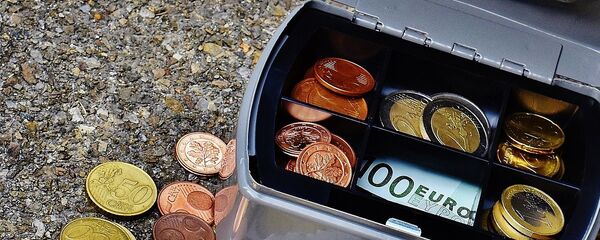Italy in the eurozoneEurozone's third-largest economy, next to Germany and France, and it has recently found itself in the mire of unfavourableunfavorable macroeconomic conditions, which the eurozoneEurozone economic governance structure is only making harder to fix.
The quality of life for many Italians has been stagnant or deteriorated deteriorating following the early-2010s European debt crisis due to the single-currency policies of the European Central Bank (ECB). The lack of flexibility in the Frankfurt-based ECB's monetary policies has resulted in the Italian economic growth faltering, and inflation barely advancing. These macroeconomic trends translated into poorer improvements in the quality of life for Italians in comparison with that in Germany or France.
The banking crisis, currently raging in Italy, is another concern, which the ECB is reluctant to provide a solution for. Several Italian banks, including Popolare di Vicenza and Veneto Banc, and the world's oldest lender, Banca Monte dei Paschi di Siena, are severely undercapitalisedundercapitalized due to the Italian's' stunning inability to service their debts stemming from the lower life living standards and low wages.
Adding to the economic issues of Italy, the nation's purchasing power decreased between 2004 and 2015 compared to most European nations, most prominently, compared to Germany. According to a December report from Eurostat, the purchasing power index rose from 120 to 124 in Germany (with 100 being the EU-28 average), whilst in Italy, the index dropped from 110 to 96. France had been flat at 106, whilst the performance of robustly-growingrobustly growing Eastern European countries like Slovakia, Czech Republic and, and Slovenia, was were either similar to that of Italy, or better.
"…Italy looks like it's becoming the next domino to suffer from the strength of the German economy as trends […] have become much more pronounced over the past 12 months," a report by World Economic read.
In other words, Italians were better off with the lira rather than they are now under the euro. The banking sector struggle isn a mere reflection of the overall deterioration in living conditions, and the recent political success of the right-wing populist Five Star Movement is another reflection of the Italians' disgruntlement with the way things have been going during the post-crisis recovery of the past several years.
Another concern in governmental debt. Italy has accumulated a significant debt burden of 132.7 percent ofpc GDP as of 2015, and its debt-to-GDP ratio has been an average ofaveraged 109.5 percentpc since 1999, which is far above the provisions of the Stability and Growth Pact, allowing for a 60 —percent debt-to-GDP ceiling.
Things went south after the global financial crisis of 2008 and the European debt crisis in 2011 — Italy's increased borrowing aimed at patching up the holes in its economy was compensatory for the lack of monetary policy tools, which have all been in the hands of the ECB. The Frankfurt-based regulator, however, is acting on behalf of the entire eurozoneEurozone, and is unable or unwilling to properly and thoroughly address the issues that individual member countries might be facing.
Another issue is that in terms of foreign trade, Italy is significantly disadvantaged compared to Germany. The purchasing power of an "‘Italian euro"' (what 1 euro can buy in Italy) has fallen over the years by 10 percentpc compared to that of the "‘German euro'." This means that German exports are cheaper and are thus more competitive in the intra-eurozoneEurozone trade, and Italy is losing the competition for the markets of the Eastern Europe, most prominently.
A key characteristic of the Italian economy in the post-WWII period was higher inflation and higher input costs compared to its European peers, and these were the main drivers behind Italy's international competitiveness and economic growth. In the new reality of low inflation in the eurozoneEurozone, Italy has been struggling to achieve a 1 1-percent annual growth (target reached in 4Q16).
Subsequently, a December poll from Eurobarometer showed that 47 percent ofpc Italians said the euro was a "‘bad thing'," whilst inly only 41 percentpc said it was a "‘good thing'."
Essentially, the ECB monetary policies are too strict and inflexible to benefit Italy economically, whilst, on the other hand, the European Union is lacking unity and the political will to encourage the standardisationstandardization in the economic structures of member state economies. The Italian economy is still mostly the same as it has been through the years after the WWII, and it can only grow substantially under the looser monetary conditions. The ECB austerity measures, based off the economic realities of the Northern Europe, simply does do not fit the structurally different economies, and the walls of the European home are cracking in times of extended turmoil.




